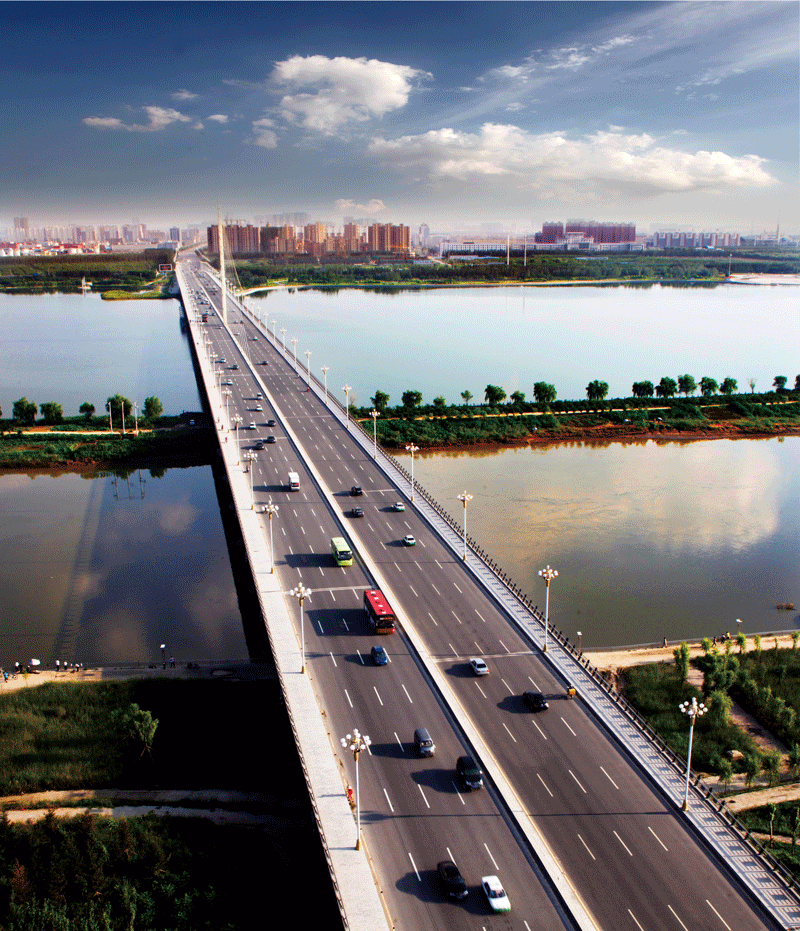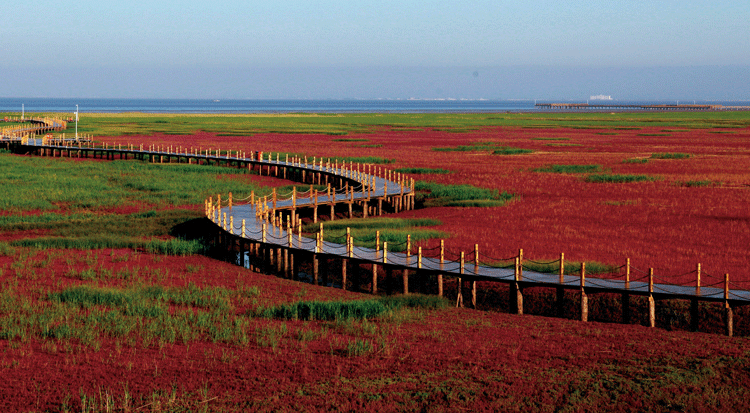 The Role Panjin Has Played in China’s Growth
The Role Panjin Has Played in China’s Growth
Panjin, a Chinese coastal city, is located in southwest Liaoning Province, centred in the Liaohe River Delta, and is on the north bank of the Bohai Sea. Called Crane’s Town and Hometown of Black-headed Gulls, it is also increasingly becoming known as a fixture of industrial innovation and an essential component of the Belt and Road Initiative (BRI). In this article, Ye Zhang and Mingxin Zhao from the Panjin Development Zone Management Committee outlines the importance of this city to China’s financial future and the role it will play in helping the country internationalise.
Panjin’s gross domestic product reached renminbi-yuan (CNY) 115.4 billion in 2017, an increase of six per cent from the previous year. Investment in fixed assets reached CNY 60.39 billion and the use of foreign capital was United States dollar (USD) 197.4 million, with the total export value being CNY 2.13 billion.
Panjin is located at the core of the land transport network in the three northeastern provinces and is one of the most important transport hubs in the region. Contributing to the city’s economic development is the high-speed rail system and the Panjin port, the most direct seaway out of northeastern and eastern Mongolia.
Development zones
The BRI has helped develop Panjin. Jointly established by the China North Industries Group and Saudi Aramco, the Fine Chemicals and Raw Materials Project is an important BRI project being cooperatively handled by China and Saudi Arabia, with investment totalling CNY 69.5 billion.
The Panjin Fine Chemical Industry Development Zone is key to the coastal region of Liaoning Province and is designated a provincial-level specialised chemical development zone. With a planning area of nearly 30 square kilometres, it was established in January 2008. Relying primarily on the Petro China Liaohe Oilfield and the North China Huajin Chemical Group, the development zone focuses on: high-end equipment manufacturing, the production of new materials, smart manufacturing, intelligent energy, and fine chemicals. In 2017, with over 100 companies’ entering the development zone, the total value of the area’s industrial output was CNY 30.12 billion.
This development zone is committed to creating a first-class business environment and to building a new area for international investment and business development. Enterprises are supported by the four no’s management model, which are: no permits required out of the zone, no additional fees, no regular inspections, and no inexistent services. The development zone has the first incubator base for fine chemicals and has designated a 2025 High-end Manufacturing Innovative and Entrepreneurial Industrial Park in the northeastern part of the province to provide development opportunities for high-precision enterprises.
As the first incubator for fine chemical companies in Northeast China. The Panjin Fine Chemicals Incubation Base covers an area of 407 acres and 52 standard workshops, providing a full range of services for companies. It focuses on the development of surfactants, electronic chemicals, oil chemicals, catalysts and industrial additives, and biochemicals. Additionally, the base also functions as centralised storage for sewage pre-treatment and as a public warehouse for dangerous goods.
The 2025 High-end Manufacturing Innovative and Entrepreneurial Industrial Park, with an area of 117 acres and a total investment of CNY 270 million offers services, which include providing enterprises with original and auxiliary materials for production and supporting the development of new materials and smart manufacturing industries.
Strategic advantage
From a development perspective Panjin City has obvious comparative advantages in certain industries vis-à-vis other areas in China. One area Panjin has a specific advantage in is the fine chemical industry. Fine chemicals, is an area with some of the greatest potential for development. It encompasses a large variety of products and serves as a good platform for further developing China’s chemical sector. With Panjin’s help, China will become an important transfer destination for chemicals in the BRI, due to the country’s large demand and adequate supply of raw materials.
When it comes to manufacturing, the Chinese Government has made a major strategic decision to revitalise its old industrial base in Northeast China. The goal is to return the northeast part of China to the country’s industrial base. If this revitalisation successfully takes place, the northeast could end up having an enormously positive role to play on China’s economic growth. At present, the world is slowly shifting from simple manufacturing to equipment manufacturing and heavy chemical industries. The northeast is the country’s largest heavy chemical industry base and since Northeast China, including Panjin, has expertise in equipment manufacturing and a cheap labour pool, it is expected to be the best region for undertaking China’s expansion in the chemical sector.



Recent Comments